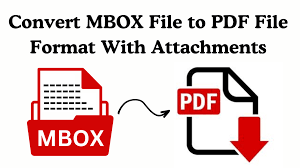
The Benefits Of Cloud-Based POS Billing Software For Hypermarkets
- Jun 08, 2024
- | 144
Hypermarkets are complex businesses with a lot of moving parts. From inventory management to customer service, there are many different tasks that need to be handled simultaneously. If things go wary, it can chew up a lot of time to get things back to normal. Thus, it is important to have the right tools and software in hand to manage everything seamlessly.
One of the most important aspects of running a successful hypermarket is having an efficient and effective point of sale (POS) system. Technological advancement is paving the way to cloud-based solutions. Cloud-based POS billing software can provide a wide range of benefits for hypermarkets, including improved flexibility, scalability, and security. However, why should one prefer a cloud-based hypermarket POS solution? What are the shortcomings of an on-premise solution that can be solved through cloud-based hypermarket POS software? Let’s find out!
Shortcomings of On-Premise POS Solution
Following are some of the major shortcomings of an on-premise hypermarket POS solution:
Limited Accessibility
On-premise POS software is typically installed on a single computer or a local network, which means that it can only be accessed from that location. You need to be present on the premise in order to operate such software. This can be a problem for businesses that need to access their POS software from multiple locations or even remotely.
Limited Scalability
On-premise hypermarket POS systems can be difficult to scale as a business grows. Expanding to multiple locations or adding new employees may require purchasing additional software licenses or hardware. Further, the software will have to be installed in all such locations. Consolidation of the data from all the locations can be a tricky task.
Limited Integration Options
Integration with other solutions is one of the most essential features of POS software. On-premise POS software may have limited integration options with other business software, such as accounting or inventory management systems. This can make it difficult to streamline business processes and automate tasks. Duplication of work and the increased error rate can become an issue in such cases.
Limited Updates and Support
On-premise POS software may require manual updates and may not receive regular updates or support from the vendor. This can expose the software and enterprise data to threats. Security vulnerabilities and software compatibility issues can crop up over time.
Increased Risk of Data Loss
This is one of the major drawbacks of on-premise hypermarket POS software. On-premise POS software stores data locally on the system or server. This can increase the risk of data loss in the event of a hardware failure, theft, or natural disaster. Recovering this data might or might not be possible. This can be a major problem for businesses that rely on their POS software to manage critical data.
How Cloud-Based POS Billing Software Helping Businesses?
Hypermarkets are now shifting to cloud-based hypermarket billing software. Here are the benefits of cloud-based POS software that make it a preferred choice in any hypermarket:
Flexibility
One of the main benefits of a cloud-based pos billing software is its flexibility. Traditional on-premise POS systems require dedicated hardware and software, which can be expensive and inflexible. Cloud-based POS systems, on the other hand, allow hypermarkets to access their POS system from anywhere, at any time, with a simple internet connection. This means that hypermarkets can quickly and easily set up new registers or temporary locations during peak shopping periods, without having to invest in additional hardware or software.
Scalability
Hypermarkets are constantly growing and evolving, and their POS systems need to keep up. Otherwise, POS can be a big constraint on your expansion dreams. With traditional POS systems, adding new registers or expanding to new locations can be a time-consuming and expensive process. Cloud-based POS systems, however, can scale up or down quickly and easily, depending on the needs of the hypermarket. This means that hypermarkets can quickly add new registers or locations during busy periods, and then scale back down during slower periods, without having to make a significant investment in new hardware or software.
Security
Security is always a concern when it comes to sensitive customer data and financial transactions. Cloud-based hypermarket POS systems offer a high level of security, with regular updates and backups that protect against data loss and cyberattacks. In addition, cloud-based systems are highly customisable, so hypermarkets can implement security features that meet their specific needs, such as two-factor authentication or biometric login. While choosing hypermarket POS software, you should always check whether it meets the necessary security protocols.
Access to Real-Time Data
One of the key advantages of cloud-based POS systems is that they offer real-time data access. With a traditional POS system, data is often stored locally, which can make it difficult to access and analyse in real time. Cloud-based POS systems, however, store data in the cloud, which allows hypermarkets to access real-time data from anywhere, at any time. This means that hypermarkets can quickly analyse sales data, track inventory levels, and make informed decisions about their business operations.
Lower Cost of Ownership
Cloud-based hypermarket POS systems offer a lower total cost of ownership than traditional POS systems. With a traditional system, hypermarkets need to invest in hardware, software, maintenance, and support. Cloud-based systems, however, require no hardware or software investment and are typically priced on a subscription basis. This means that hypermarkets can benefit from advanced POS technology at a much lower cost, without having to worry about maintenance, upgrades, or support.
Storage Freedom
Storage is another big problem for on-premise solutions. This especially becomes a concern when the volume of data increases. You need to invest in storage (don’t forget backups) if you prefer an on-premise solution. However, this problem gets eliminated with a cloud-based POS solution. In these solutions, the service provider provides storage. All the data is stored in the cloud remotely and is accessible anytime anywhere. Thus, you become free from the data storage hassles in the case of cloud-based POS solutions.
In a Nutshell
Cloud-based hypermarket billing software offers a range of benefits for hypermarkets that makes them a preferred solution. They overcome most of the shortcomings of on-premise POS solutions. By leveraging the power of the cloud, hypermarkets can streamline their POS operations, reduce costs, and provide a better customer experience. However, what is an ideal cloud-based POS solution?
QueueBuster is one of the preferred cloud-based hypermarket POS solutions for hypermarkets. It is a super app trusted by thousands of brands for effectively managing their businesses. It is a one-stop solution for all business management needs. Its key offerings include billing, inventory management, online dukaan, customer relationship management, loyalty and more.
Further, with QueueBuster, you can seamlessly accept payments from multiple modes like cash, online wallets, UPI, cheques etc. Managing customers is key for any business. You can manage your customers and reward them for their loyalty through discounts and loyalty points. Here’s a glimpse of some of the unique features of QueueBuster:
- Cloud-based solution
- Offline mode to work seamlessly without the internet as well
- Bulk data management
- Integration with hundreds of devices like printers, scanners, bar code scanners, payment providers, accounting solutions etc.
- Run business in multiple currencies
- Intuitive and analytical reports
- Khata (accounting)
- Online dukaan and many more…





